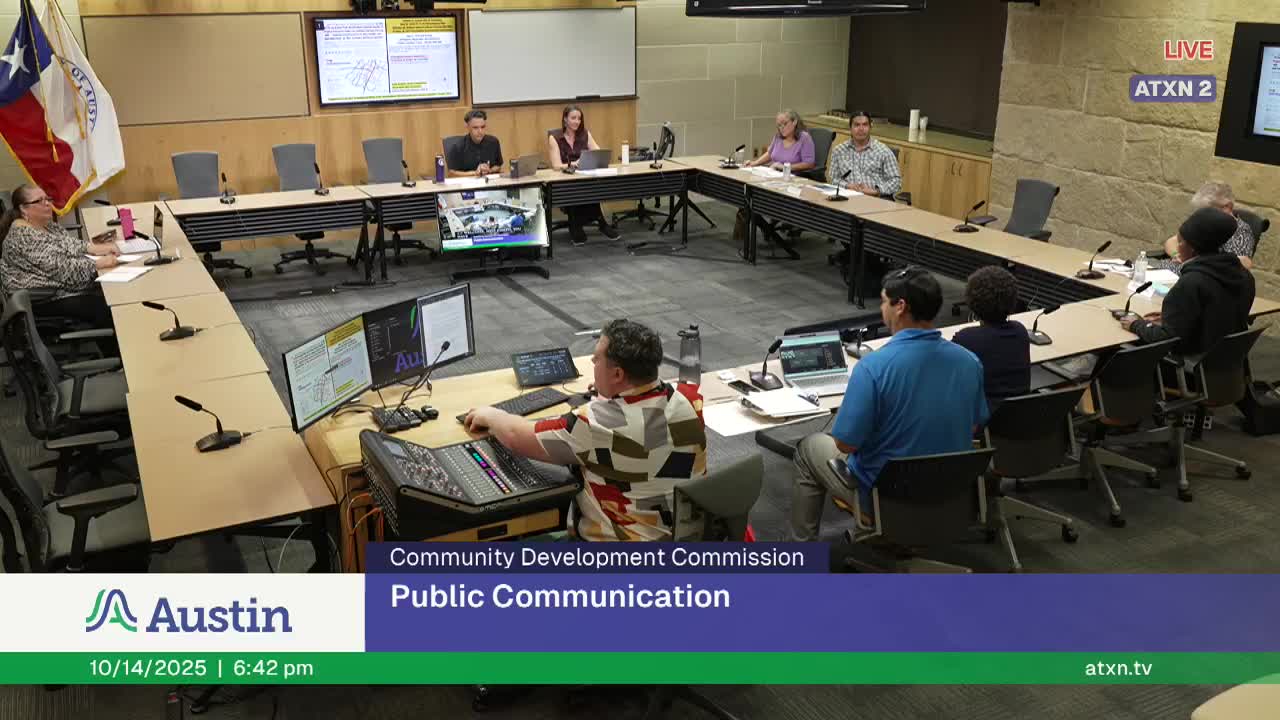Public commenter says Project Connect routing and AMI levels exclude low-income riders; urges CDC to press for transit access and anti-displacement measures
Get AI-powered insights, summaries, and transcripts
Subscribe
Summary
A community member told the CDC that Project Connect routing, stop amenities and affordable housing income targeting leave Northeast Austin and other low-income neighborhoods disconnected from frequent transit.
Zenobia Joseph, a community commenter, told the Community Development Commission that the proposed Project Connect routing, stop amenities and affordable-housing income targets risk excluding the people the CDC represents.
Joseph said the frequent-network map shows Northeast Austin north of U.S. 183 as "disconnected" and argued that Route 392 changes and the proposed 80% to 120% area median income (AMI) levels for certain affordable housing developments are effectively exclusionary for lower-income Black and Hispanic households she said typically earn about $42,000 and $50,000 respectively as of a minority-chamber 2020 study. "80% to 120% area median income is exclusionary," she said during public comment and asked the commission to "revisit that issue" and to request a substantial amendment for how federal funds were allocated.
Joseph described differences in stop amenities and lighting that she tied to unequal investment: "there once was about 2 benches ... Today ... there's only 1," and she contrasted sidewalk treatments she called "terracotta sidewalks" with plain sidewalks and said they reflect redlining-like patterns. She also linked transit routing to access to jobs, schools and health care and highlighted an instance where a pedestrian fatality occurred in the area in July 2025.
Several commissioners invited Joseph to present to the reconstituted housing committee and to return for committee discussion; commissioners and staff said they would schedule housing committee meetings and asked her to join the committee conversation. Commissioners and staff also discussed bringing health and transportation staff into the housing committee, acknowledging that housing, transit and health intersect as social determinants of health.
Joseph cited federal civil-rights laws in her remarks, telling the commission to consider the Fair Housing Act of 1968 and Title VI of the Civil Rights Act of 1964 when reviewing siting and transit impacts. She provided maps and ridership examples and urged the commission to take cross-agency action to ensure transit access for low-income residents.
